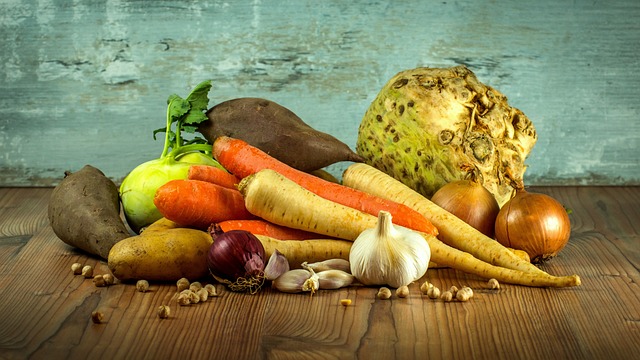This text emphasizes the multifaceted benefits of incorporating wellness practices such as yoga, meditation, and deep breathing into daily life for enhanced mental clarity, emotional balance, and overall health. Yoga's combination of physical poses, mindfulness, and meditation not only promotes bodily flexibility and muscle strength but also aids in mental relaxation by aligning breath with movement, which enhances oxygenation and can trigger detoxification effects. Complementing these exercises with consistent physical activity and healthy eating habits supports the body's healing processes and maintains flexibility. Gratitude journaling is recommended to foster a positive mindset, further amplifying wellness benefits. Stress management strategies are improved through deep breathing exercises that activate the relaxation response, lowering heart rate and blood pressure. Together with yoga, these practices create a holistic approach to self-care that includes meditation for deeper relaxation and gratitude journaling for mental wellness. This comprehensive strategy, which also encompasses regular physical activity, healthy eating habits, and social interactions, supports resilience and contentment, leading to a balanced, fulfilling lifestyle. By integrating these mindfulness techniques into one's routine, individuals can effectively manage stress and enhance their quality of life.
Embark on a journey to enhance your body’s suppleness and calm your mind with our exploration of wellness practices. This article delves into the integration of yoga and stretching routines, highlighting their dual benefits for flexibility and relaxation. We will traverse through mindfulness techniques such as yoga exercises and meditation practices, emphasizing their roles in stress management strategies. Additionally, we’ll uncover how deep breathing exercises, gratitude journaling, and healthy eating habits form a cornerstone of holistic self-care routines, fostering overall wellbeing. Join us as we unlock the secrets to a more balanced and tranquil lifestyle.
- Embracing Wellness: Integrating Yoga and Stretching Routines for Enhanced Flexibility and Relaxation
- Cultivating Mindfulness through Yoga Exercises and Meditation Practices
- The Role of Deep Breathing, Gratitude Journaling, and Healthy Eating in Stress Management Strategies
- Establishing Self-Care Routines: Combining Regular Physical Activity with Wellness for Holistic Wellbeing
Embracing Wellness: Integrating Yoga and Stretching Routines for Enhanced Flexibility and Relaxation

Embarking on a journey toward enhanced flexibility and relaxation can significantly contribute to overall wellness. Yoga exercises stand out as a cornerstone in wellness practices, offering a blend of physical postures, mindfulness techniques, and meditation practices that cater to both the body and mind. These exercises are designed to improve range of motion, strengthen muscles, and promote a sense of calm by synchronizing breath with movement. By incorporating yoga into your self-care routines, you can enhance your body’s agility and foster a tranquil state of being that is conducive to stress management strategies. Additionally, the focus on deep breathing exercises within yoga sessions encourages oxygenation of the blood and can lead to a detoxifying effect, further supporting the body’s natural healing processes.
Complementing yoga with regular physical activity and healthy eating habits ensures a holistic approach to wellness. Engaging in stretching routines post-yoga can help maintain the flexibility gained from the exercises. These routines are particularly effective when combined with a balanced diet that provides the necessary nutrients for muscle repair and recovery. Moreover, integrating gratitude journaling into your daily self-care routine can amplify the relaxation benefits by fostering a positive outlook, thereby reinforcing the overall wellness experience. Together, these practices create a synergistic effect that not only enhances flexibility but also supports mental clarity, emotional balance, and a deeper sense of inner peace.
Cultivating Mindfulness through Yoga Exercises and Meditation Practices

Integrating yoga exercises and meditation practices into one’s wellness routine is a powerful approach to cultivate mindfulness, enhancing overall mental clarity and emotional equilibrium. Yoga, with its diverse asanas, invites practitioners to listen attentively to their bodies, promoting a heightened state of present-moment awareness. This mindfulness extends beyond the physical realm, as each movement becomes an opportunity to notice thoughts and feelings without judgment, fostering a deeper sense of self-awareness and connection.
Incorporating deep breathing exercises into one’s daily routine is another key element in achieving a state of relaxation and focus. These breathwork techniques, often part of yoga sessions, help regulate the body’s stress response and can be a precursor to or complement to meditation practices. When combined with gratitude journaling and self-care routines, these mindfulness techniques become a holistic approach to wellness that nurtures the body, calms the mind, and soothes the spirit. By embracing healthy eating habits and regular physical activity as part of this regimen, individuals can further enhance their capacity for resilience and contentment, leading to a more balanced and fulfilling life.
The Role of Deep Breathing, Gratitude Journaling, and Healthy Eating in Stress Management Strategies

Deep breathing exercises are a cornerstone in wellness practices and serve as an effective mindfulness technique to facilitate stress management strategies. When practiced regularly, deep breathing can activate the body’s relaxation response, counteracting the effects of stress by lowering heart rate and blood pressure. This tranquil practice is often incorporated into yoga exercises, where it complements the physical postures, enhancing both flexibility and mental calmness. Beyond physical postures, meditation practices that involve focused breathing can also lead to heightened states of relaxation and clarity of mind, allowing for a more meditative state conducive to stress relief.
Integrating gratitude journaling into one’s self-care routines is another powerful tool in maintaining mental wellness. This reflective practice promotes a positive mindset by shifting focus from negative thoughts to acknowledging life’s blessings, which can significantly reduce stress levels. Coupled with healthy eating habits that emphasize nutrient-dense foods and regular physical activity, gratitude journaling becomes part of a holistic approach to wellness. These practices not only nourish the body but also foster a sense of contentment and balance, essential elements in any comprehensive stress management strategy. Together, deep breathing, gratitude journaling, and healthy eating create a foundation for managing stress effectively, complementing the transformative effects of yoga and meditation, thereby fostering an overarching sense of peace and well-being.
Establishing Self-Care Routines: Combining Regular Physical Activity with Wellness for Holistic Wellbeing

Incorporating wellness practices into daily life can significantly enhance holistic wellbeing. A pivotal component of this is engaging in regular physical activity, such as yoga exercises, which not only promote flexibility but also serve as a foundation for relaxation and stress management. Yoga, with its comprehensive approach to health, aligns seamlessly with mindfulness techniques, guiding individuals through poses that cultivate an awareness of the body and breath. This mindful movement can be complemented by meditation practices, which allow for a deeper connection with one’s inner self, fostering mental clarity and emotional balance. The combination of yoga exercises and deep breathing exercises acts as a dual-pronged approach to soothe the nervous system, reducing tension and invoking a state of calmness. Furthermore, integrating healthy eating habits into one’s routine supports the physical benefits of these practices by nourishing the body with wholesome nutrients, thereby reinforcing the overall wellness regimen.
Beyond the physical aspect, self-care routines are enriched by incorporating gratitude journaling, a practice that encourages reflection on positive aspects of life. This daily exercise in recognizing and appreciating what one already has can shift focus from what is lacking to an abundance mindset, which is conducive to sustained wellbeing. Additionally, self-care routines are not isolated to the private sphere; they also extend into social interactions by fostering a sense of community and support. Engaging in activities that promote connectedness with others can further enhance one’s sense of belonging and purpose. Together, these elements—yoga exercises, meditation practices, healthy eating habits, gratitude journaling, and regular physical activity—form a holistic self-care routine that addresses the multifaceted nature of wellness.
Incorporating yoga and stretching routines into one’s daily life emerges as a pivotal wellness practice for bolstering flexibility and fostering relaxation. By engaging in yoga exercises and meditation practices, individuals can cultivate mindfulness, a valuable technique that contributes to holistic wellbeing. The article underscores the significance of deep breathing exercises, gratitude journaling, and healthy eating habits as integral components of effective stress management strategies. Establishing self-care routines that combine regular physical activity with these wellness practices can lead to a more balanced and centered life, enhancing one’s quality of life overall. Embracing this holistic approach not only improves bodily flexibility but also promotes mental clarity and emotional resilience, essential for maintaining equilibrium in today’s fast-paced world.
